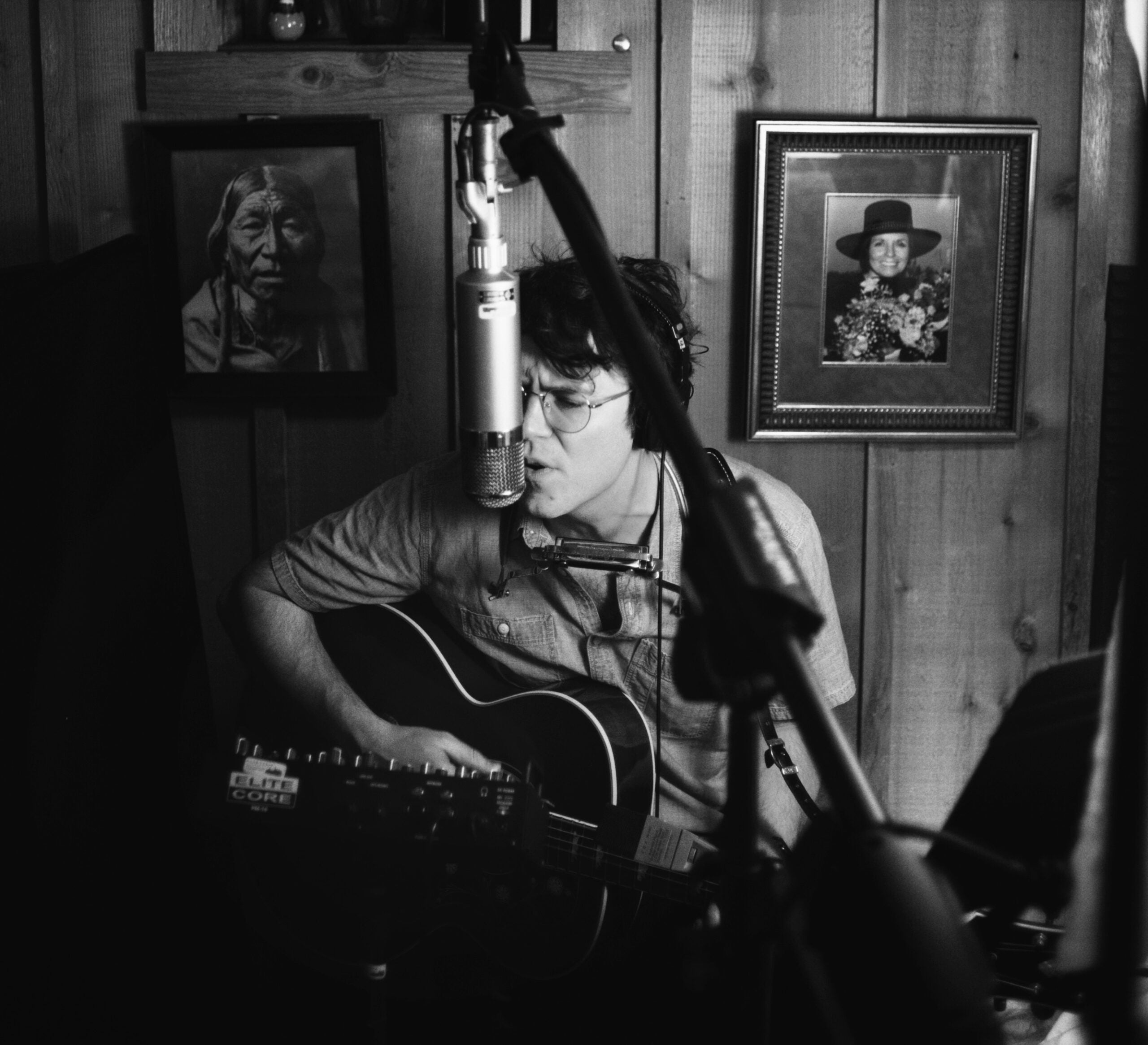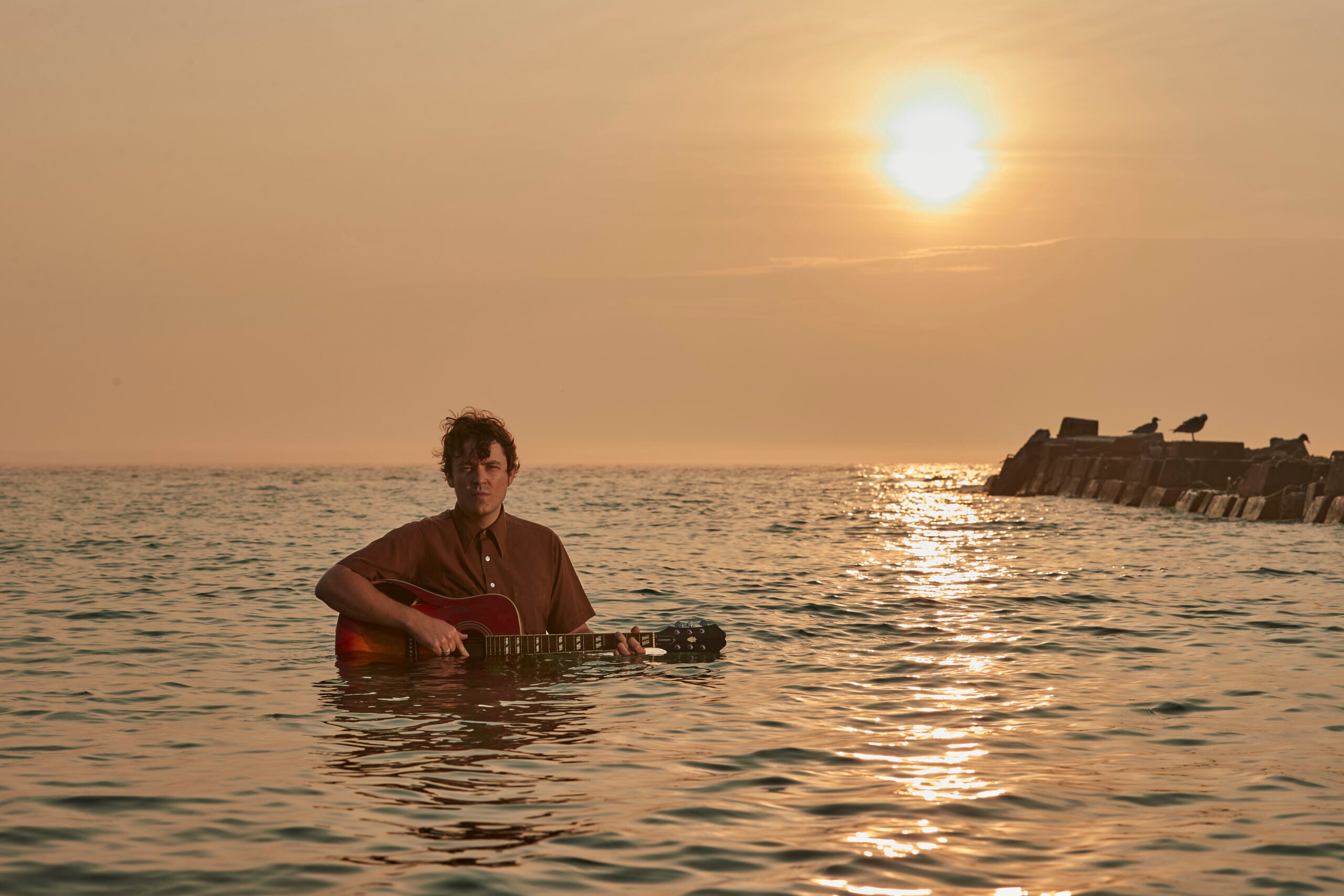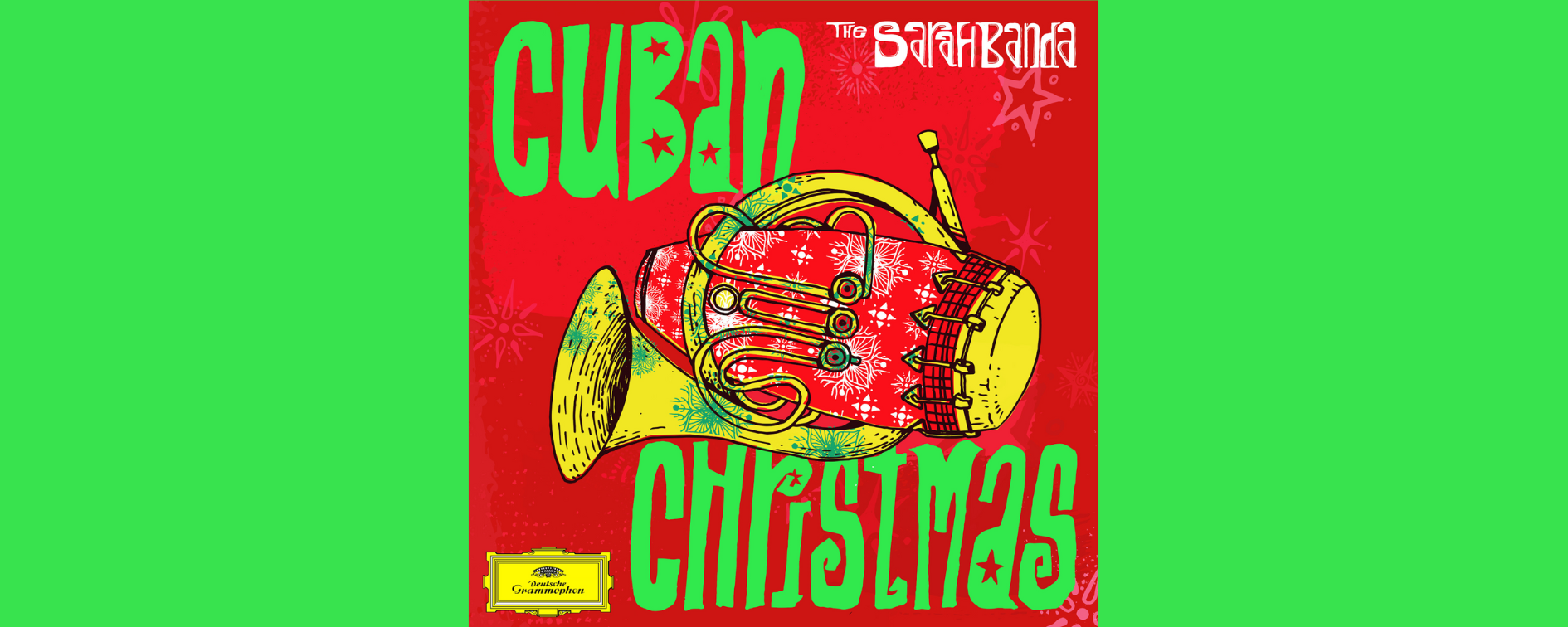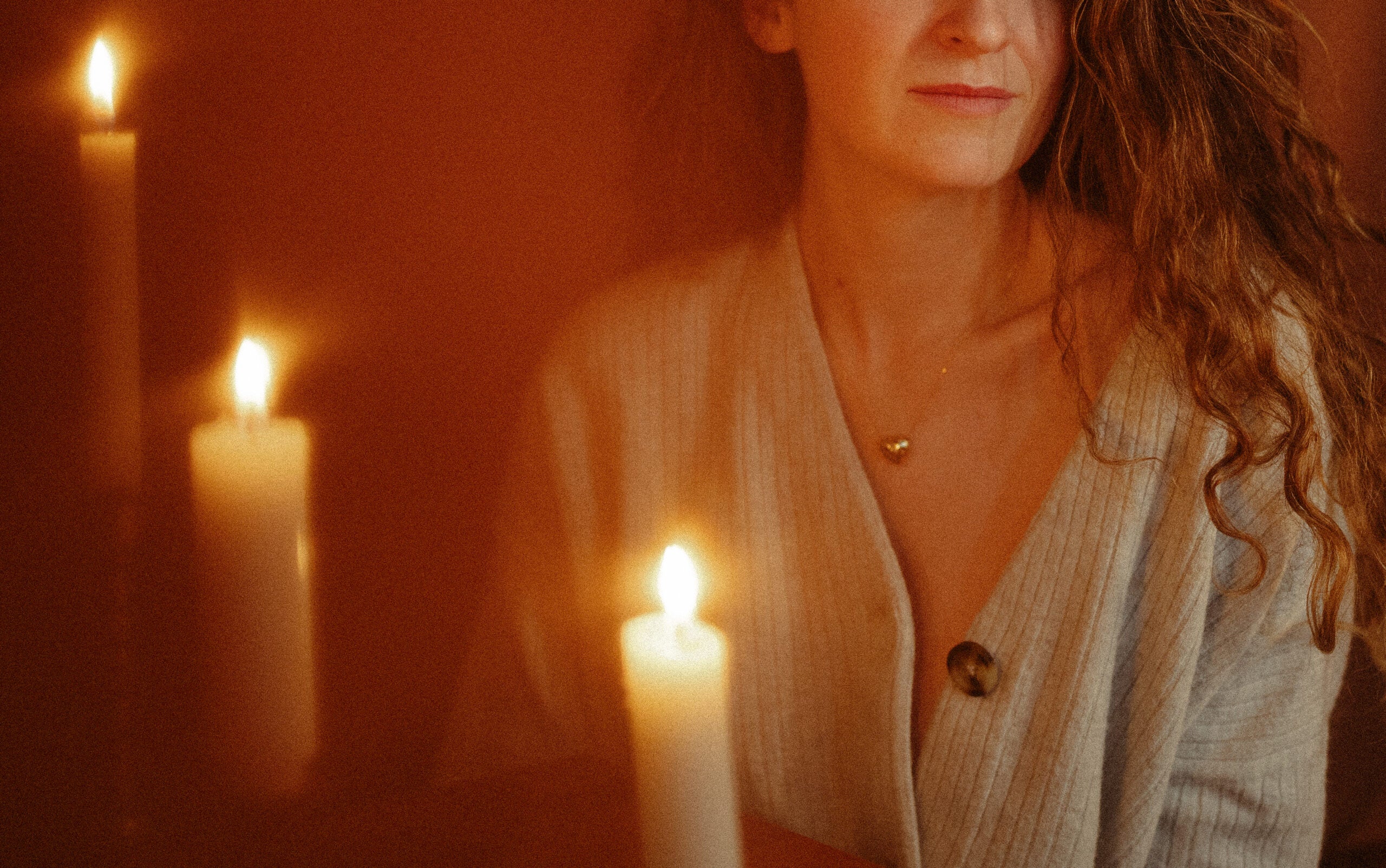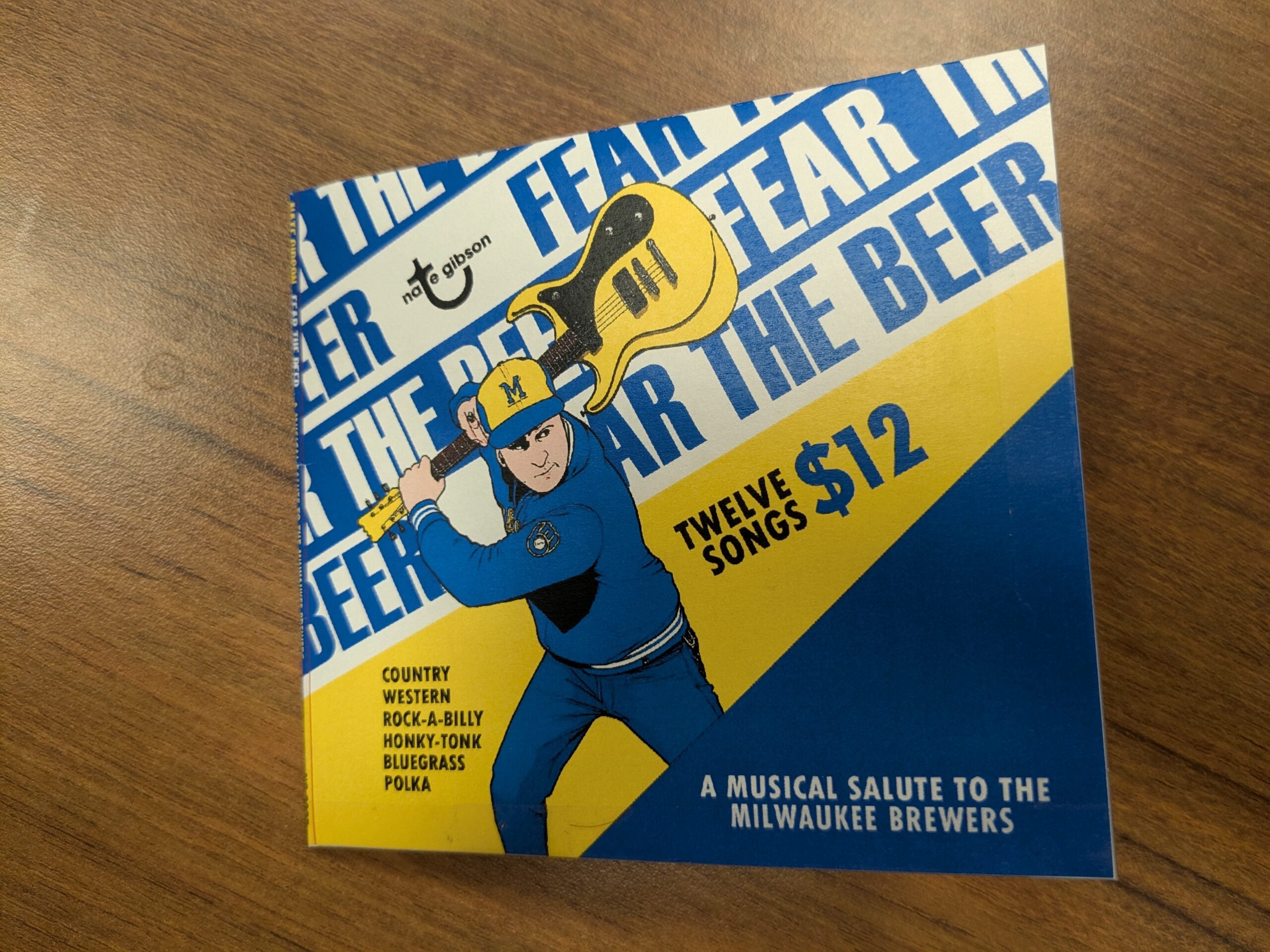In 2021, Milwaukee-based musician Trapper Schoepp watched a YouTube video of an Irishman moving his fingers up and down the neck of the guitar using a technique called “open D tuning.”
Now Schoepp is out with a new album, “Siren Songs,” focusing on the technique commonly used by early folk and blues musicians.
“It basically was the whole impetus for this album. I D-tuned my guitar, and I began writing songs,” he said. “It was as if I had never played guitar before.”
News with a little more humanity
WPR’s “Wisconsin Today” newsletter keeps you connected to the state you love without feeling overwhelmed. No paywall. No agenda. No corporate filter.
This summer, Schoepp plans to showcase the album while performing throughout the country. His Wisconsin stops include Shorewood, Elkhart Lake, Baraboo, Madison and Spring Green. The songs have an Irish folk inspiration with lyrics about war and prejudice.
He recorded the album at Johnny Cash’s rural Tennessee cabin. He had access to instruments like June Carter Cash’s Steinway piano and a guitar Schoepp said was in Cash’s living room for most of his life.
Wisconsin Public Radio’s “The Morning Show” spoke with Schoepp on the day he released “Siren Songs” to get a deeper understanding of his inspiration and creativity.
The following was edited for brevity and clarity.
Kate Archer Kent: Let’s talk about “Devil’s Kettle” and what inspired the song.
Trapper Schoepp: It is a mysterious rock formation right off Highway 61 near the Boundary Waters (in northern Minnesota). About 10 years ago, I was up there with my friend, who is a nature guide, and he was telling me about this crazy geological wonder. One stream of the waterfall goes underground to a completely unknown location and the other stream goes off into Lake Superior. He told me that Al Capone used to have his guys bring bodies up and dispose of them in the Devil’s Kettle.
There are all sorts of other bits of folklore surrounding this geological wonder. But I wrote the chorus for the song 10 years ago and when I was putting the album together, I came up with this sort of bluesy track on my guitar, and I pieced (the chorus and track) together.
KAK: What was your production like on the album, especially at Johnny Cash’s cabin?
TS: You walk into Johnny Cash’s cabin, and you are immediately taken by just the vibe. It is a sacred and holy house of music. There’s a mantle there, and everybody from Snoop Dogg to Dolly Parton has signed in.
Guitars are everywhere. There’s June Carter Cash’s Steinway piano, if you can imagine the songs played on that. And the instrument that took me most — well I won’t swear on air — (I’ll call it) Johnny Cash’s “Crapkicker” guitar.
He left that guitar on his couch in his living room throughout his whole life. Everybody picked up this guitar and played it.
KAK: When I watched the music video for “Secrets of the Breeze,” it was so special to see youthful Irish dancers in decorated costumes coming out on stage with you. I thought he must be really committed to the Irish folk tradition. Why is that important to you?
TS: Irish music can make you laugh, and it can make you cry. It is just some of the world’s most beautiful music and so much of American folk music is based on a lot of those traditions.
The Clancy Brothers were very important in helping inspire and form like 1960s folk music. They stood up with their Irish sweaters in the early 1960s and helped change the direction of folk and rock music.
KAK: How does the creative process work in songwriting?
TS: It’s not as exciting as you might think. I have my iPhone notes that are just filled with something I overheard, someone saying something at the diner or something that I heard on TV or a song that I really liked.
It’s a bit of a patchwork quilt of all of these influences and people that I meet and the stories that I hear.
That’s what makes the creative process so fun. Once you’ve opened that door, you just never know what will blow in.
KAK: What can you tell us about “Silk and Satin?”
TS: It tells the tale of a drag queen who is living a bit of a double life. By day, they are a Manhattan businessman, and by night, they are a drag queen.
It tells the story of someone living that double life and someone special that they meet along the way.
I once heard that the earliest form of drag was actually sailors’ wives who would dress up like sailors and accompany their husbands at sea. I thought that was the most romantic thing I had ever heard in my life.
That was the beginning of that song. And I have always really admired drag queens.
KAK: How do you decide what instruments to feature in the song?
TS: With this album, it was really interesting because they say that the studio is sort of an instrument, right? When we walked into Johnny Cash’s cabin, the first thing that I saw was this Civil War era harmonium.
That is a fold up organ that used to be used by chaplains on battlefields. So, you’d pump it with your feet and play it with your hands and that’s how chaplains would hold services.
I thought it was just the most ongoing and beautiful sort of tone. We used that instrument on songs called “Good Graces” and “Secrets of the Breeze.”
I think it’s just what’s around. We used an old railroad spike that Johnny Cash had. We didn’t have the traditional Irish drum, so we used (a drummer’s case from Cash’s 1960s television show).
KAK: The first track of the album is called “Cliffs of Dover.” Why start the album here?
TS: I am sick and tired of war. I have lived most of my adult life with America fighting or indirectly involved in some sort of war. So many veterans come home from war, and they don’t have proper health care, they don’t have proper housing, they don’t have a proper sense of community.
Now more than ever, we need to be standing up for veterans as well as speaking out against the warlords of the world. I love my country but sometimes hate my government and all of the wars that we found ourselves in. I think it’s very important if you’re going to call yourself a folk singer.
Wisconsin Public Radio, © Copyright 2026, Board of Regents of the University of Wisconsin System and Wisconsin Educational Communications Board.

